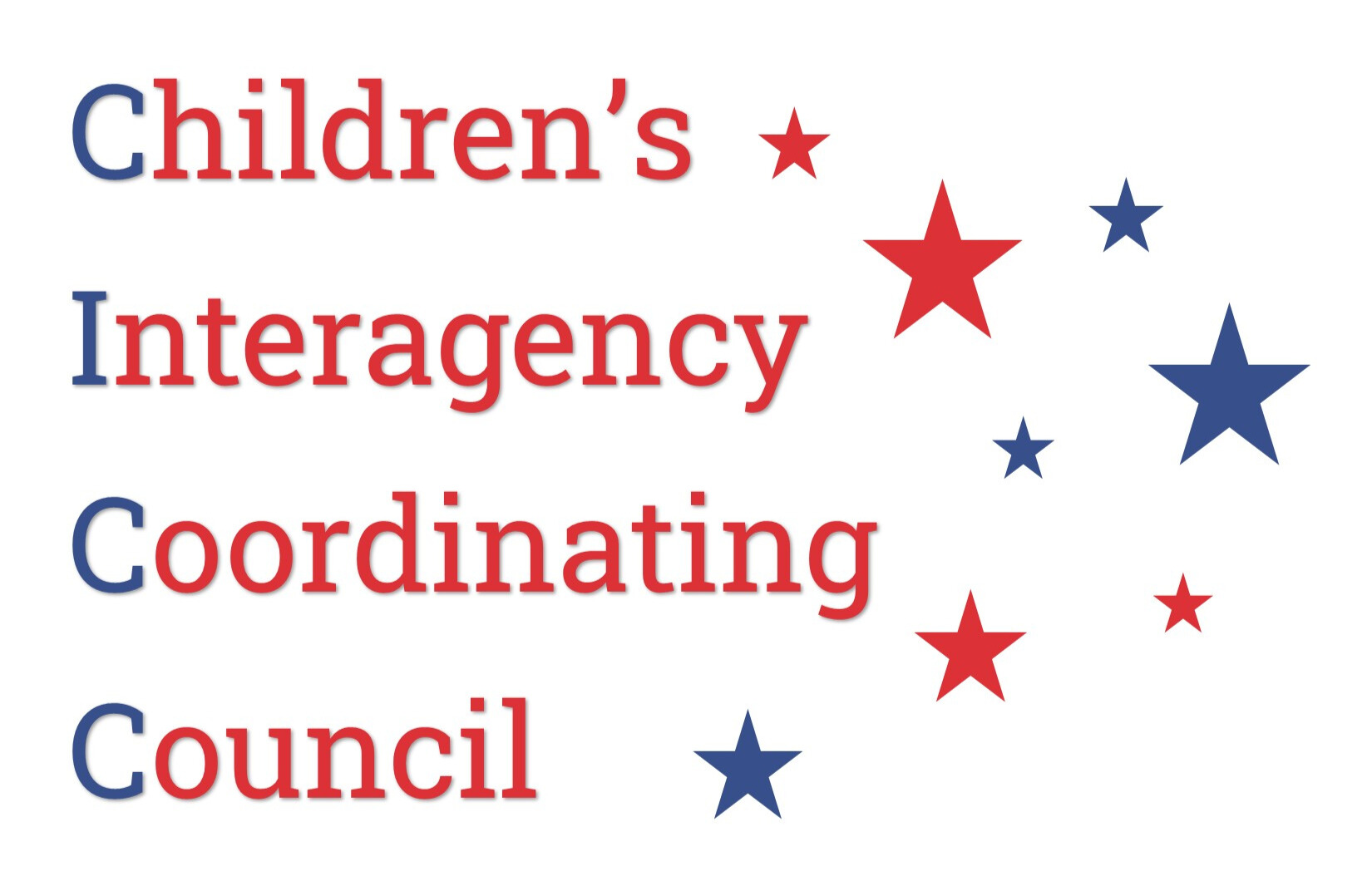Youth who receive special education services under the Individuals with Disabilities Education Act (IDEA 2004) and especially young adults of transition age, should be involved in planning for life after high school as early as possible and no later than age 16. Transition services should stem from the individual youth’s needs and strengths, ensuring that planning takes into account his or her interests, preferences, and desires for the future.
Children’s Interagency Coordinating Council

In December 2022, Congress charged the U.S. Department of Health and Human Services (HHS) with establishing the Children’s Interagency Coordinating Council (CICC) to foster greater coordination and transparency on child policy (covering ages 0-17) across federal agencies, and to examine and periodically report on a broad array of cross-cutting issues affecting child well-being, particularly poverty.
- CICC Kickoff | November 15, 2023
- CICC July Knowledge Exchange — Improving Benefit Access and Utilization for Children and Their Families Experiencing Poverty | July 22, 2024
- CICC December Knowledge Exchange — Child Care Investments: Pathways to Economic Mobility for Families Experiencing Poverty | December 4, 2024
- About the CICC (PDF, 1 page)
- Federal Child Care Resource List for Parents and Caregivers Experiencing Poverty (PDF, 3 pages)
- Federal Policy Impacts on Child Poverty
- Factors that Impact the Child Support Program’s Role in Reducing Child Poverty: Convening Summary
- Participant Experiences with Improving Well-Being Through Human Services Programs
- Supporting Child and Family Well-Being: Case Studies
The CICC engages multiple partners by fostering collaboration on child policy across federal agencies. Its work is led and executed by a variety of contributors, including federal leaders and career executives, dedicated staff, and a pool of Lived Expert Consultants, among others. The Office of the Assistant Secretary for Planning and Evaluation within the U.S. Department of Health and Human Services coordinates the CICC.
Partner agencies include the Departments of Agriculture (USDA), Defense (DOD), Education (ED), Health and Human Services (HHS), Housing and Urban Development (HUD), the Interior (DOI), Justice (DOJ), Labor (DOL), and the Treasury and the Social Security Administration (SSA).
Note: Links and references to information from non-governmental organizations are provided for informational purposes and are not an HHS endorsement, recommendation, or preference for the non-governmental organizations.
Other Resources on this Topic
Feature Articles
Youth Topics
Youth Briefs
Research links early leadership with increased self-efficacy and suggests that leadership can help youth to develop decision making and interpersonal skills that support successes in the workforce and adulthood. In addition, young leaders tend to be more involved in their communities, and have lower dropout rates than their peers. Youth leaders also show considerable benefits for their communities, providing valuable insight into the needs and interests of young people
Statistics reflecting the number of youth suffering from mental health, substance abuse, and co-occurring disorders highlight the necessity for schools, families, support staff, and communities to work together to develop targeted, coordinated, and comprehensive transition plans for young people with a history of mental health needs and/or substance abuse.
Nearly 30,000 youth aged out of foster care in Fiscal Year 2009, which represents nine percent of the young people involved in the foster care system that year. This transition can be challenging for youth, especially youth who have grown up in the child welfare system.
Research has demonstrated that as many as one in five children/youth have a diagnosable mental health disorder. Read about how coordination between public service agencies can improve treatment for these youth.
Civic engagement has the potential to empower young adults, increase their self-determination, and give them the skills and self-confidence they need to enter the workforce. Read about one youth’s experience in AmeriCorps National Civilian Community Corps (NCCC).
















